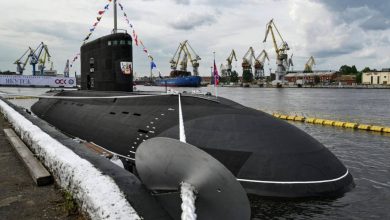Turkish scientists to explore sea depths for space life clues

Turkish scientists will dive into the depths of the Black Sea, as well as the Atlantic and Pacific oceans, as part of a large-scale project aimed at uncovering potential clues about extraterrestrial life.
The “DeepTrace” project of the Middle East Technical University’s (ODTÜ) Institute of Marine Sciences will see researchers diving to depths of 2,500 meters in lightless regions of the seas.
Led by Professor Dr. Mustafa Yücel, deputy director of the institute, the project’s first phase will begin soon with deep-sea dives in the Pacific Ocean, lasting 36 days.
The research mission there will be conducted in collaboration with researchers from the University of Delaware and the Rensselaer Polytechnic Institute in the U.S.
Funded by the European Research Council (ERC) with 2.4 million euros, the project is expected to conclude in 2028.
To support the analysis process, a first-of-its-kind laboratory has been established at ODTÜ to analyze samples collected from the ocean floor, and local sensors have been developed for experiments during the mission.
Before the dive, Yücel shared that the team, consisting of 20 members, will conduct research in an area of the Pacific Ocean known for its hydrothermal vents, located 2,400 to 2,600 meters below the surface.
The research will be conducted aboard the “Atlantis” research vessel, and deep-sea studies will be carried out using the Alvin research submersible, which famously located the wreck of the Titanic.
“We will undertake this research in order to find evidence of livable conditions in deep space. The deep-sea hydrothermal vents in the seas are the closest habitats to where we may detect signs of life in space,” Yücel explained.
The primary goal of the research is to understand how the composition of nanoparticles in deep-sea hydrothermal vents changes based on factors like pH, temperature and other key parameters. These findings will be directly comparable to data collected during future space missions, according to Yücel.
Suna Tüzün, a postdoctoral researcher at the institute who is coordinating the project’s fieldwork, shared that the team will use the Alvin submersible to collect both water and chemical samples from the hydrothermal vent sites.
Each dive, lasting six to eight hours, will involve two scientists on board, who will collect samples and conduct measurements using on-site sensors.
Tüzün expressed her excitement and sense of privilege to be part of such a unique experience.
“It’s especially meaningful for inspiring and motivating young women,” she noted, as many young women and girls may not realize they could one day be involved in such high-level scientific operations.
“This project is an inspiring work to demonstrate that such possibilities are open to them as well.”





